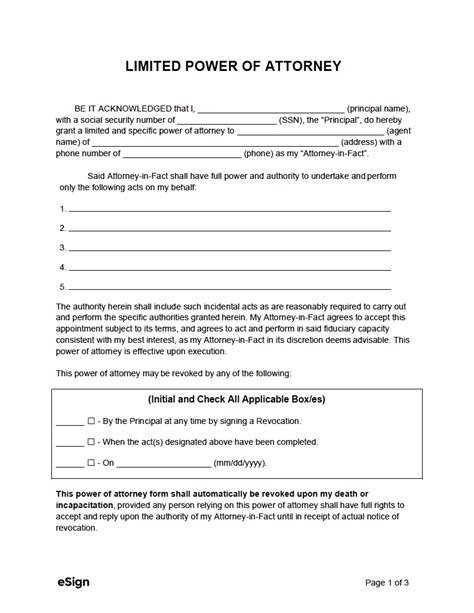
Introduction
Hi readers,
Welcome to our comprehensive guide on laws regarding power of attorney. In this article, we’ll delve into the legal framework surrounding this crucial legal instrument, providing you with a clear understanding of your rights and responsibilities.
Whether you’re considering granting power of attorney to someone or you’re currently serving as an agent under a power of attorney, it’s essential to have a firm grasp of the governing laws. This guide will help you navigate the legal landscape confidently, ensuring that your rights are protected and your wishes are respected.
Types of Power of Attorney
Durable Power of Attorney
A durable power of attorney allows your agent to continue acting on your behalf even if you become incapacitated. This type of power of attorney is particularly valuable for individuals who may experience physical or mental impairments in the future.
General Power of Attorney
A general power of attorney grants your agent broad authority to act on your behalf in all financial and legal matters. This type of power of attorney is typically used for short-term situations where you’re unavailable or unable to handle your affairs independently.
Special Power of Attorney
A special power of attorney limits your agent’s authority to specific tasks or transactions. For example, you could grant someone a special power of attorney to sell a particular property or to represent you in a legal dispute.
Responsibilities of the Agent
As an agent under a power of attorney, you have several important responsibilities:
Fiduciary Duty
You have a fiduciary duty to act in the principal’s best interests at all times. This means you must prioritize their well-being and financial stability.
Duty of Care
You must exercise reasonable care and prudence in managing the principal’s affairs. This includes making informed decisions, keeping accurate records, and seeking professional advice when necessary.
Duty of Loyalty
You must avoid any conflicts of interest and always act with undivided loyalty to the principal. This means you cannot use your position for personal gain or to benefit third parties.
Rights of the Principal
As the principal granting power of attorney, you retain certain rights:
Right to Revoke
You have the right to revoke a power of attorney at any time, with or without cause. You can do this by destroying the original document or by notifying your agent in writing.
Right to Instructions
You have the right to provide instructions to your agent regarding how you want your affairs to be managed. These instructions can be specific or general.
Right to Accounting
You have the right to request an accounting from your agent at any time. This accounting should provide a detailed record of all transactions and expenses incurred on your behalf.
Legal Consequences of Violating Power of Attorney Laws
Violating the laws regarding power of attorney can have serious legal consequences:
Civil Liability
If an agent breaches their fiduciary duty or otherwise violates the terms of the power of attorney, they may be held liable for any damages suffered by the principal.
Criminal Charges
In some cases, violating power of attorney laws can constitute a criminal offense, such as forgery, fraud, or elder abuse.
Conclusion
Understanding the laws regarding power of attorney is essential for protecting your rights and interests. Whether you’re considering granting or serving under a power of attorney, it’s crucial to seek legal advice to ensure that your wishes are respected and that your affairs are handled in accordance with the law.
Related Articles
- Estate Planning: A Beginner’s Guide to Wills and Trusts
- Choosing the Right Executor for Your Will
- Navigating Probate: A Step-by-Step Guide
FAQ about Power of Attorney
What is a power of attorney?
- A legal document that gives one person (the agent) the authority to make decisions on behalf of another person (the principal).
Who can create a power of attorney?
- Any competent adult over the age of 18.
Who can be an agent?
- Any competent adult, including family members, friends, attorneys, or financial advisors.
What types of powers can be granted?
- Specific powers (e.g., managing finances, making medical decisions) or general powers (e.g., full authority to act on behalf of the principal).
How long does a power of attorney last?
- A durable power of attorney remains in effect until the principal revokes it or the principal becomes incapacitated.
What is an incapacitated principal?
- Someone who is unable to make their own decisions due to a physical or mental disability.
Can a power of attorney be revoked?
- Yes, the principal can revoke a power of attorney at any time, as long as they are competent.
What happens if the agent abuses their power?
- The principal can take legal action to hold the agent accountable for any damages or losses.
How can I protect myself when granting a power of attorney?
- Choose an agent you trust and who will act in your best interests.
- Consider limiting the powers granted or creating a specific power of attorney for a specific purpose.
When should I consider creating a power of attorney?
- In case of an emergency, disability, or extended absence. It ensures your affairs are managed according to your wishes.

